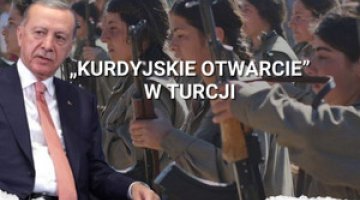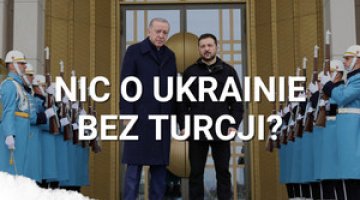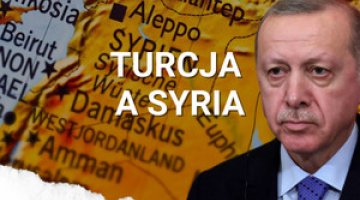Turkey on the brink of war with Syria
On 3 February, direct clashes broke out between Syrian and Turkish troops in the region of Idlib. First, Syrian troops bombed and shelled Turkish checkpoints, killing at least 14 Turkish soldiers. According to Ankara, around 135 Syrian soldiers were killed in retaliation, and two Syrian helicopters were also shot down over the next few days. In a speech on 12 February, preceded by a series of harsh statements from Turkish politicians, President Recep Tayyip Erdoğan announced that retaliatory actions would cover the whole territory of Syria in the event of any further such incidents. He also gave an ultimatum to the authorities in Damascus, demanding that Syria withdraw its troops from the areas they have occupied in recent months in the region of Idlib. The rise in tension has been accompanied by Turkey increasing the concentrations and transfer of its own troops into the conflict zone and building new checkpoints (which currently number around 37). The number of Turkish forces in the area of the clashes is currently estimated to be at least 7000 soldiers. At the same time the refugee crisis is growing rapidly: at least 900,000 refugees from the areas of the Syrian regime’s offensive have gathered at the closed Turkish-Syrian border.
Commentary
- The offensive by Syrian troops in the Idlib region of north-western Syria – the last area under the radical Syrian opposition’s continuous control since 2011 – has been ongoing since 24 November last year. It is being supported by Russian air forces and Russian military advisers, among others. The region is home to around four million people, around half of whom are internally displaced persons. The area is defended by opposition forces numbering around 40,000, the core of whom is the militant radical organisation Hayat Tahrir ash-Sham; the pro-Turkish groups which have been operating there have now more or less formally merged into the so-called Syrian National Army (including the Syrian Liberation Front). Under the Astana agreements of 2018, this region formally remains a de-escalation zone under Turkish supervision, as evidenced by the Turkish army’s 12 checkpoints in the area. As a result of their intensified efforts over recent weeks, Syrian government forces have taken a number of important areas in the zone, including regaining full control of the strategic M5 motorway linking Hama to Aleppo. This led to the exodus of the civilian population (estimated at no less than 900,000 people) to an area near the closed border with Turkey; also, most of the fortified Turkish observation points were cut off, and attacks on some of them have been carried out.
- Since 2011 the conflict in Syria has posed the biggest challenges to Turkish foreign policy, and is also affecting the major issues in its domestic politics. Initially, Turkey optimistically assumed that the Syrian opposition would win and that Ankara would become the patron of the Sunni forces in Syria and throughout the Middle East. However, Turkey was pushed into a deep defensive due to the support provided to the Damascus regime by Iran, and then Russia; the situation was exacerbated by US support for the Syrian Kurds – who are linked to the terrorist Kurdistan Workers’ Party (PKK, which is fighting the Turkish state) – as part of Washington’s war with the Islamic State. Turkey took over the border areas since 2016 in three consecutive operations (which were de facto coordinated by Russia and the US), thus limiting the activity of the hostile Kurds from Syria. Under the Astana agreements concluded with Russia, Turkey also assumed formal responsibility for the Idlib region; this area is controlled by radical Sunni groups, and has received civilians and fighters evacuated from other opposition-controlled enclaves in Syria. As Ankara (and to some extent Moscow) saw it, Turkey was to have reorganised the remains of the Sunni opposition and joined in the process of bringing political stabilisation to Syria, thus protecting both its own fundamental interests and those of the local Sunnis. These hopes proved impossible to realise, due to the resistance of the radical opposition groups (for reasons including internal clashes, from which the pro-Turkish formations emerged weakened), and also because the Assad regime is trying to regain full control over Syria (as seen from its ongoing offensive). Idlib is also the only area in Syria where Turkey could expect any real support fromthe Syrian opposition.
- From Ankara’s perspective, the scale of the problems around Idlib has also increased dramatically due to the worsening of the migration crisis in Turkey itself. Since 2011 its territory has given shelter to a total of 3.6 million Syrian refugees. Contrary to the Turkish government’s hopes of a quick end to the war and the refugees’ return to Syria, most of them are still in Turkey, which has caused numerous social and political problems. This situation contributed significantly to the ruling Justice and Development Party (AKP)’s spectacular failure in local elections in Turkey’s major cities in 2019. The justifications for the Peace Spring military operation in October 2019, aimed at the Syrian Kurds linked to the PKK, included the need to create conditions to repatriate the refugees already residing in Turkey. Meanwhile, the growing threat of Idlib’s collapse has led to the influx of a new wave of refugees, who have spent the past nine years living in conditions of conflict, becoming both traumatised and radicalised. Ankara regards this prospect as posing a fundamental threat to the stability of both the government and the country as a whole. This problem also concerns the EU, which could potentially be exposed to the same wave of refugees. It has also generated additional tension between Ankara and Brussels/Berlin. Idlib’s survival as a place in which civilians can remain safe is becoming a burning question for Turkey’s internal security, which means that Ankara cannot accept the fall of the enclave.
- The scale of the problems Turkey has faced in recent times has increased in relation to the casualties directly caused by the Syrian attacks. It is a factor which greatly excites Turkish public opinion and forces the authorities into responding, especially as these losses result from an attack by a state of relatively low prestige in the eyes of the Turks. The Syrian authorities’ violation of the hitherto respected unwritten principle of avoiding direct clashes, and their forces’ isolation of most of the Turkish observation posts in Idlib, portends a further escalation of the situation. This opens up the possibility that Ankara’s own forces could become directly involved against Damascus, using the full potential of its army against a decidedly weaker opponent. Turkey has already taken its first steps in retaliation: on 12 February the President himself announced his readiness to escalate; in similar cases, such as when the Syrian Kurds were accused of collaborating with the PKK, these declarations were followed by decisive military actions. Any intensification of the Turkish-Syrian conflict would risk open military conflict between the two states.
- Turkey’s involvement in Syria’s problems has brought it under strong Russian pressure. Until 2015 Ankara had openly fought against Russian influence in Syria (culminating in the shooting down of a Russian aircraft), but eventually joined it in a system of interdependencies and cooperation, accepting the position of the weaker partner. At present, Turkey’s political and military activities in Syria are accepted by and coordinated with Russia. Moscow, in turn, has developed an effective model of control over Damascus (which it shares with Iran), while playing off tensions between all the participants in the Syrian conflict (apart from Turkey, this includes Iran, Israel, and to a limited dimension the US and the EU) – an approach which has led to the relative weakening of each competitor. One recent example of this was Russia’s curbing of the Turkish offensive on the Syrian Kurds, and its current support (both politically and through air power) for the Syrian government forces’ offensive on Idlib, which it justifies in terms of Turkey’s failure to honour its obligations under the Astana agreement. This means that any Turkish action against the Syrian army could – although it need not – meet the Russian protective umbrella (for example, in the form of the imposition of a no-fly zone, or the introduction of more troops), and in extreme cases provoke an active response from Russian troops. In practice, Russia could adjust the scale of the Syrian forces’ attacks, as well as the limits of Turkey’s response. In a wider perspective, escalating the conflict would strengthen Russia’s position as the main playmaker in the Syrian conflict.
- Currently, Turkey is faced with a strategic choice which will have far-reaching consequences. While the need to defend Idlib and bring about a confrontation with the regime in Damascus seems indisputable, the question of what scale of activities Turkey will undertake remains open. In the most conservative scenario it will be forced to carry out both military (against Syria) and political activity (against Russia) in order to halt the offensive, evacuate its checkpoints and conduct symbolic reprisals. The weakness of this approach is that the gains will be only temporary, while the pressure of the refugees on the Turkish borders will remain. In a more pro-active option, Ankara will use the current offensive to weaken the opposition groups in Idlib, in order to subjugate them more completely, and will then begin limited counter-offensive activities. To realise this plan, Turkey will need cooperation from Russia. This option appears more likely thanks to the relative restraint of the Turkish authorities and the allegedly more conciliatory tone adopted by President Erdoğan in a speech on 12 February, after having held a telephone conversation with President Putin. Nevertheless, the consequence of such a move would be Turkey’s continued dependence on Russia.
- It seems unlikely, though not impossible, that Turkey will revise its Syrian policy and its attitude towards Russia more profoundly, which would result in a large-scale operation against the forces of the Syrian regime, while running the risk of confrontation with Russian forces in Syria. This scenario would represent a reaction to the Turkish public losing its patience due to the problems for state security caused by Idlib, and also to the attitude of Russia. One expression of Ankara’s growing distance from Moscow was its criticism of Russia’s implementation of the joint arrangements under which Turkey halted its offensive against the Syrian Kurds in Rojava. Further examples of Turkey’s readiness to undertake clearly anti-Russian actions were its launch of a military operation in Libya supporting the local government against the Russian-backed opposition (since December 2019), as well as its support for Ukraine (with an emphasis on recognising the country’s integrity, including occupied Crimea) during President Erdoğan’s visit to Kyiv (on 3 February).
Map. Situation in the Idlib region.






